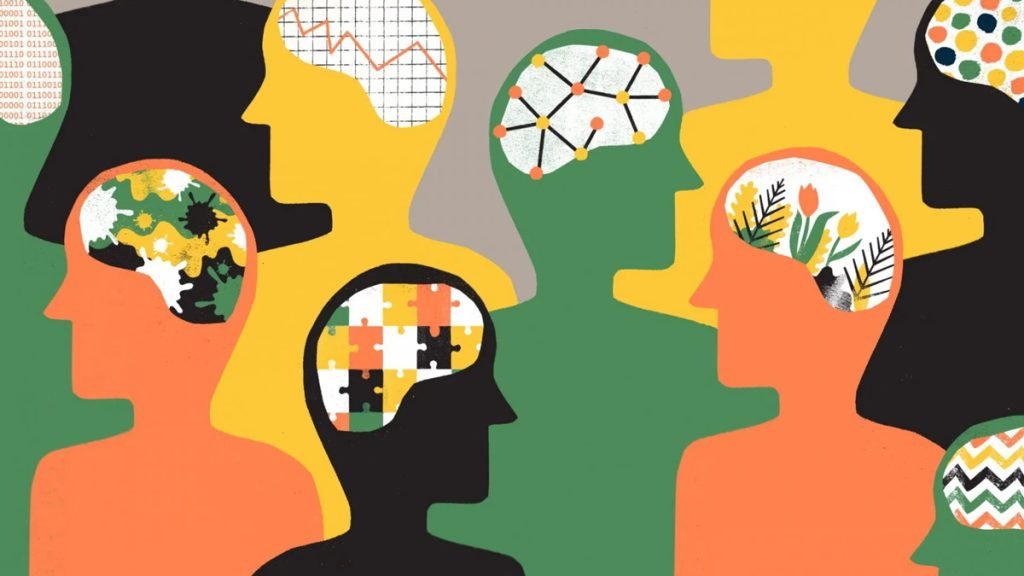If you’re not drinking, it doesn’t mean you’re in recovery. For many years I have conducted psych educational discussions with families whose loved ones have been affected by addiction. It’s always nice when you have a hundred and fifty people in a room and you know they’re not all alone in an experience where awareness can be found as well as emotions and resentments. Addiction is a difficult phase. It is one of the most difficult and least understood addictions. It’s not at all that we don’t understand addiction, but it has long been a topic that has been debated many times. There are many ideas about it like is it a hereditary disease? Can it be called a disease? Does it come from our genes? Is it a psychological problem or is it related to our environment? Or is it the result of our character defects or our own choices?
Michael J. Formica is considered an expert counselor. He is also a life coach, teacher and self-care person who has written extensively on many innovative topics such as spirituality, psychology. He, like many experts, trained at Columbia University Teachers College and holds three degrees in psychology as well as a degree in philosophy. Michael received Theravada and Buddhist training as well as mastering Hanakaitana Yoga from HH Hariswami Rama and the Himalayan Master.
Editor: Iqra Tariq
However, if you want to get the right answer about addiction, ask ten people the same questions and you will learn ten new ideas. However, this model fits all kinds of addictions, be it alcoholism, drug addiction, prostitution, gambling, love or compulsive buying and selling. I will use the word alcoholism anyway because it is more commonly used. It is important to remember that behaviors that are related to addiction are a symptom of the same addiction. Addiction itself is a process in which our behaviors become dependent on our thoughts and we repeat the same behaviors over and over without wanting to. According to the mental and social spectrum, people with addiction lie, steal and cheat. They indulge in behaviors like cheating, lying and doubting. Regardless of who they are in front of. All the focus of their attention the next dose of the drug has to be decided. Although this is a bitter truth, it is the bitter truth at present.
Watch Dr. Sadaqat Ali’s special program on the topic of drug addiction.
It is important to note that bad attitudes do not make great people. When we become addicted, our attitudes become necessarily negative. It is common to think that a person suffering from addiction will be a very thin person who does not care about himself and his eyes will be sunken in, but the opposite is true. I would like to give an example of a friend of mine who was addicted to heroin five years ago and used five kilos of heroin a day but no one could tell by looking at him. He was a music teacher in a school, wore Armani brands and even at the age of 53, he took his mother to church himself.
Generally, alcoholics drink alcohol day and night without taking care of their clothes and hygiene. They never give up drinking nor do they ever give up drugs. This type of drinking is usually called conscious drinking, which is meeting your demand for what your body needs in order to function. Many of you try unsuccessfully to maintain this standard but do not know how to do it. There is a chronic alcoholism and a cyclical alcoholism with a gradually decreasing alcoholism. These are people who do not drink alcohol throughout the day but drink one or more bottles at night.
Watch Dr. Sadaqat Ali’s special program on the subject of alcoholism in Pakistan.
There are also binge drinkers who drink alcohol on a special occasion or just one day a week. Such people stay clean throughout the week, but then at the end of the week, the drinking phase takes over. Some binge drinkers are also called blackout drinkers. It is a stage where you cannot even stand on your feet due to alcoholism. They appear to be fine but in reality they have no idea what is going on with them and they do not remember anything. I confess that until now I have failed to know, or should I say, fully understand, the root cause of alcoholism. It needs to be kept in mind that the blackout stage occurs with a certain type of alcoholic. Sometimes it can be due to an allergy. I know a lady in college who used to black out after a beer or two. It is a very dangerous situation because man does not know its dangerous steps and consequences.
There are also reactive drinkers, conditional drinkers and avoidant drinkers. A reactive drinker tends to drink only in certain emotional situations, such as stress or loneliness. These are people who also work but at the same time use alcohol to forget their sorrows. A conditional drinker only drinks when they are busy doing something, such as eating dinner or watching a game or TV. A coping drinker turns to alcohol to solve his problems because he sees alcohol as the only solution to his problems. In fact, all of these people still use alcohol as a drug to ease their grief. A coping drinker differs from a reactive drinker in that he uses alcohol because of a particular type of problem rather than with a particular thought process.
For example, I had a patient who had been in recovery for fourteen years. His father died of ALS and he drank a few bottles of beer before meeting him. After two months he stopped drinking and has now been sober for five years. Did he catch it and then let it go? So of course it would not be wrong to say that his drinking was accidental and he drank in response to a certain thought to reduce his stress and anxiety. We have identified several addiction styles and now we need to think about addiction again but this time using the language of alcoholism.
Alcoholics: These are people who follow a certain pattern and have the ability to go about their daily tasks comfortably while other types of alcoholics go about their daily routines. Fail to perform.
Problem Drinker: These are people who have no continuity and communication in their drinking. Such people are not looking for a special occasion but they can drink at any time and their drinking is affecting their day-to-day affairs. Such persons cannot properly perform their relations with people in the society.
Dry Drinkers: These are individuals who have stopped drinking but still do not change their behavior. They continue to indulge in negative activities like lying, fighting, cheating.
Sober: These are people who have positively changed their behavior along with giving up alcohol.
Past Sober: These are individuals who have not only given up drinking, but also made positive changes in their behavior and have overcome all the factors that led them to relapse.
I think the most important example I would give of a “post-sober” is the people I describe in the 13-step program. Such people are performing job duties in very good places today. He is also working as a doctor in quite high places. I worked with one such woman who had been sober for a long time and was working as a driver and was quite happy. What are the strengths and weaknesses of an addictive character? If seen, it is a person who cheats and tells lies. Also unable to fulfill responsibilities often fails in any work. Often seen suffering from stress and mental problems. It is also losing money. This set does not end here but it continues because all kinds of negative behavior can be caused by such a person.
When it comes to the emotional state of an alcoholic, his emotions fluctuate. Often suffers from depression and stress. In terms of personality traits, the behavior of an alcoholic is usually observed. Addiction is like a mask that casts a trap of self-deception on anyone. If you engage in any such addiction, know that you have negated the rest of your life. Then there comes a point when you say enough is enough and I need to get sober. Then you get freedom from addiction but the element of shame takes place in your life. Gradually one begins to sink into the trap of self-delusion because the disease of addiction is still present. You have found freedom from addiction but nothing has changed. As a result there is no change in all your senses because your attitudes have not changed, nor your thoughts. This happens because you are caught in a trap of self-delusion and you think you are fine.
The scope of addiction is quite wide I always told my parents if you really want to be right then you can do anything for it. I believe that a person can suffer from mental illness if they are experiencing emotional or social problems. This is not because this disease is more than schizophrenia or personality diseases, but because the disease of addiction has spread so much in our own society that you have to re-integrate yourself into society to avoid it so that you are the cause of this addiction. Save yourself from it.

